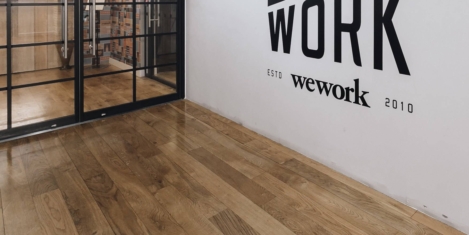September 23, 2015
European commercial property markets set to hit eight year high 0
 Activity in Europe’s commercial property markets is at its highest level since 2007, according to a new report from Knight Frank. Transaction volumes hit €104.9 billion in the first half of 2015, an increase of nearly a third on the previous year, while investment for the whole of 2015 is forecast to exceed €230 billion. The study claims that these increases are being felt in local markets across Europe, with the two largest markets in the UK and Germany performing especially strongly, accounting for around a half of total investment. There were also major improvements in levels of investment Italy and Portugal as well as more activity in both Spain and Ireland (above). However, the report concedes that rental growth remain ‘patchy’ across the continent but forecasts that this will improve as pressure grows on the availability of space in major cities like Paris.
Activity in Europe’s commercial property markets is at its highest level since 2007, according to a new report from Knight Frank. Transaction volumes hit €104.9 billion in the first half of 2015, an increase of nearly a third on the previous year, while investment for the whole of 2015 is forecast to exceed €230 billion. The study claims that these increases are being felt in local markets across Europe, with the two largest markets in the UK and Germany performing especially strongly, accounting for around a half of total investment. There were also major improvements in levels of investment Italy and Portugal as well as more activity in both Spain and Ireland (above). However, the report concedes that rental growth remain ‘patchy’ across the continent but forecasts that this will improve as pressure grows on the availability of space in major cities like Paris.










 The recent growth in prime headline office rents has continued across the UK’s regional
The recent growth in prime headline office rents has continued across the UK’s regional 
 Large firms that occupy several separate floors in a prime office may need to pay tens of thousands of pounds more in rates, property managers have been warned. The decision by the UK Supreme Court on business rates in shared office buildings will lead to higher fees for many businesses in Scotland, according to commercial property experts at Colliers International. The firm says that the case of Woolway Valuation Office v Mazars, in which the Supreme Court held that businesses occupying space across several floors should pay separate rates for each, will lead to changes in valuations across the country that will cost firms millions of pounds. Up until now, such arrangements were charged as a “single occupation” and benefited from economies of scale. Paying for two separate sets of rates is likely to be more expensive, and the court decision even allows for the changes to be implemented retrospectively.
Large firms that occupy several separate floors in a prime office may need to pay tens of thousands of pounds more in rates, property managers have been warned. The decision by the UK Supreme Court on business rates in shared office buildings will lead to higher fees for many businesses in Scotland, according to commercial property experts at Colliers International. The firm says that the case of Woolway Valuation Office v Mazars, in which the Supreme Court held that businesses occupying space across several floors should pay separate rates for each, will lead to changes in valuations across the country that will cost firms millions of pounds. Up until now, such arrangements were charged as a “single occupation” and benefited from economies of scale. Paying for two separate sets of rates is likely to be more expensive, and the court decision even allows for the changes to be implemented retrospectively.
 The number of firms planning to expand in London is at its highest level (50 percent) since 2012, though retaining employees and improving the capital’s infrastructure remain key concerns. According to the re-launched
The number of firms planning to expand in London is at its highest level (50 percent) since 2012, though retaining employees and improving the capital’s infrastructure remain key concerns. According to the re-launched 



















July 9, 2015
London transport shuts down ….. agile workers unaffected …..
by Paul Carder • Cities, Comment, Flexible working, Wellbeing
More →